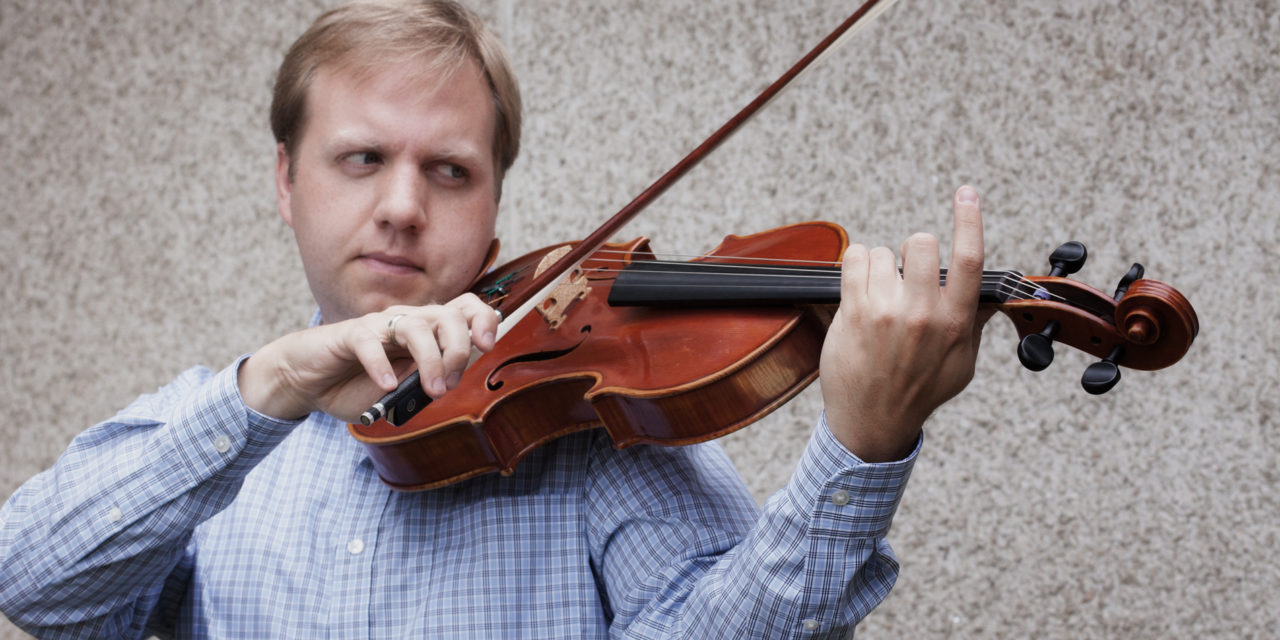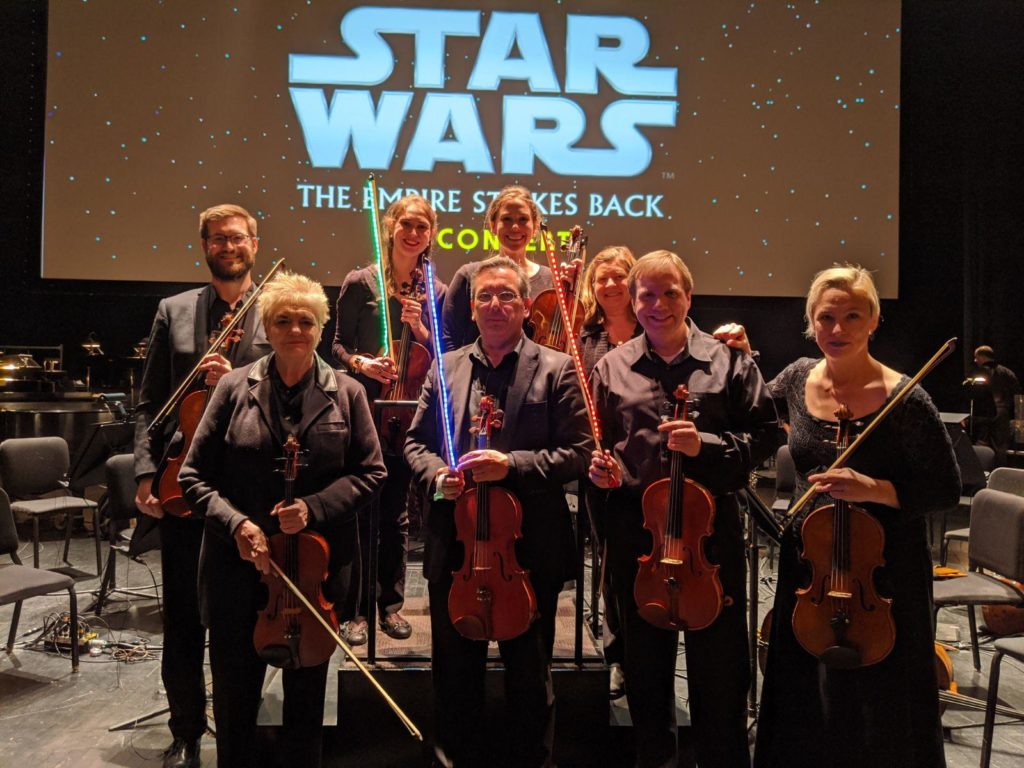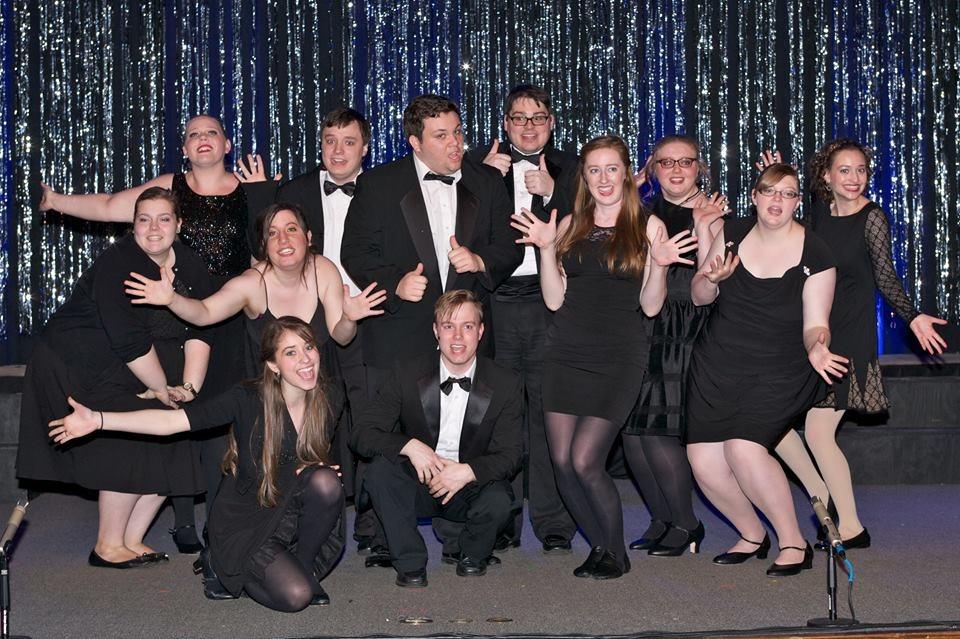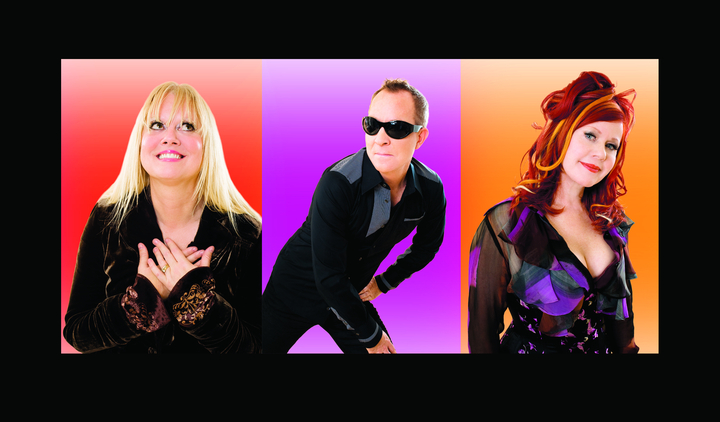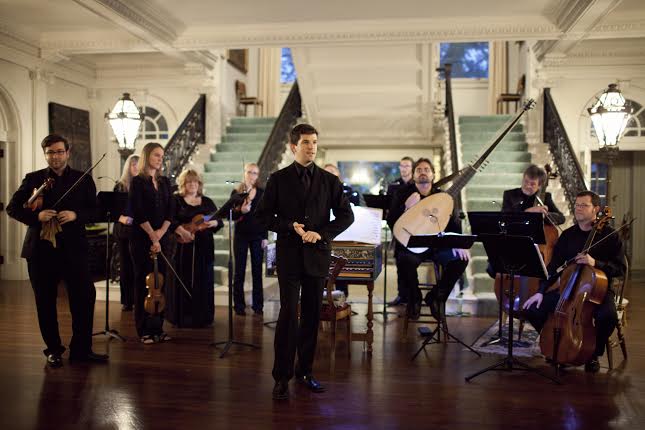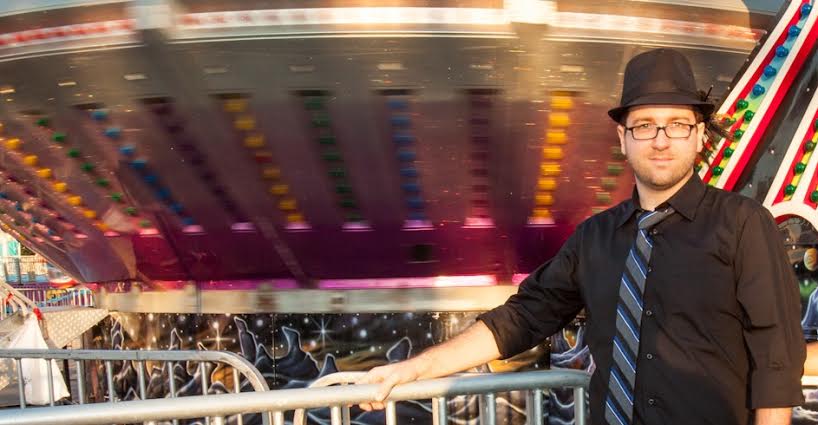Interview by Keith Waits
Entire contents are copyright © 2020 by Keith Waits. All rights reserved.
Violist Jonathan Mueller has been a member of the Louisville Orchestra since 2006. Mr. Mueller finished his Master of Music in Viola Performance at Rice University’s Shepherd School in May of 2006 under the instruction of former Cleveland Quartet Violist, James Dunham. While at the Shepherd School, Mr. Mueller performed in masterclasses for the Tokyo, American, and Mendelssohn Quartets. During his years at Rice, Mr. Mueller obtained orchestral experience with the Austin Symphony and the Symphony of Southeast Texas in Beaumont. He received the Bachelor of Music degree from Indiana University where he studied with former LA Philharmonic Principal Violist, Alan DeVeritch. While in Indiana, Mr. Mueller was a member of the Evansville Philharmonic for two seasons. In 2002, Mr. Mueller attended the National Repertory Orchestra in Breckenridge, Colorado where he had the opportunity to perform Bach’s 6th Brandenburg Concerto. In 2003 and 2004 Mr. Mueller attended the Schleswig-Holstein Musik Festival in Germany, where he had the pleasure of playing under the batons of Neville Mariner, Christoph Eschenbach, Heinrich Schiff, and Kurt Masur.
1. What was the next performance you were scheduled to do?
The final performance of the Louisville Orchestra’s 2019-2020 season was slated for this weekend (4/24-25/2020). It was going to feature a premiere collaborative composition by Rachel Grimes, Angélica Negron, Shara Nova, Caroline Shaw, and Sarah Kirkland Snider entitled The Blue Hour. The program was going to conclude with the monumental Concerto for Orchestra by Bela Bartok. Both pieces were to be conducted by Teddy Abrams.
2. When did you first know you wanted to be a musician?
It is safe to say that there was never one moment. It was almost like a steady progression towards a certain end. I began taking violin lessons partly by way of sibling FOMO (Fear Of Missing Out). My older sister was already 5 years into violin lessons when I started. I had already seen many performances and endured enough practicing from her that I figured that I had better pick it up for fear of her stealing the spotlight even more. My switch to the viola in middle school resulted in much more success. I eventually attended the Indiana String Academy in Bloomington and studied one summer with Alan DeVeritch who was a professor at Indiana University at the time. That experience all but guaranteed my attending IU for Viola Performance.
3. Do you perform outside of the orchestra?
Apart from playing the occasional wedding or chamber music concert, I play at my church, Jeff Street Baptist Community @ Liberty. My wife, Krista, and I lead music once a month and that usually involves me playing a piece or two on viola.
4. As a person of faith, what are your feelings about the mix of secular and spiritual in the repertoire of most American orchestras?
I personally have no problem with mixing spiritual and secular music. If you think about who the great early composers were, many of them worked in churches. Handel, Bach, Haydn wrote numerous works while employed by churches. Consequently, many of their students, Mozart, Beethoven, and even Brahms were asked to compose Masses. I think that given the history of symphonic music, it is natural for that mix of repertoire to occur.
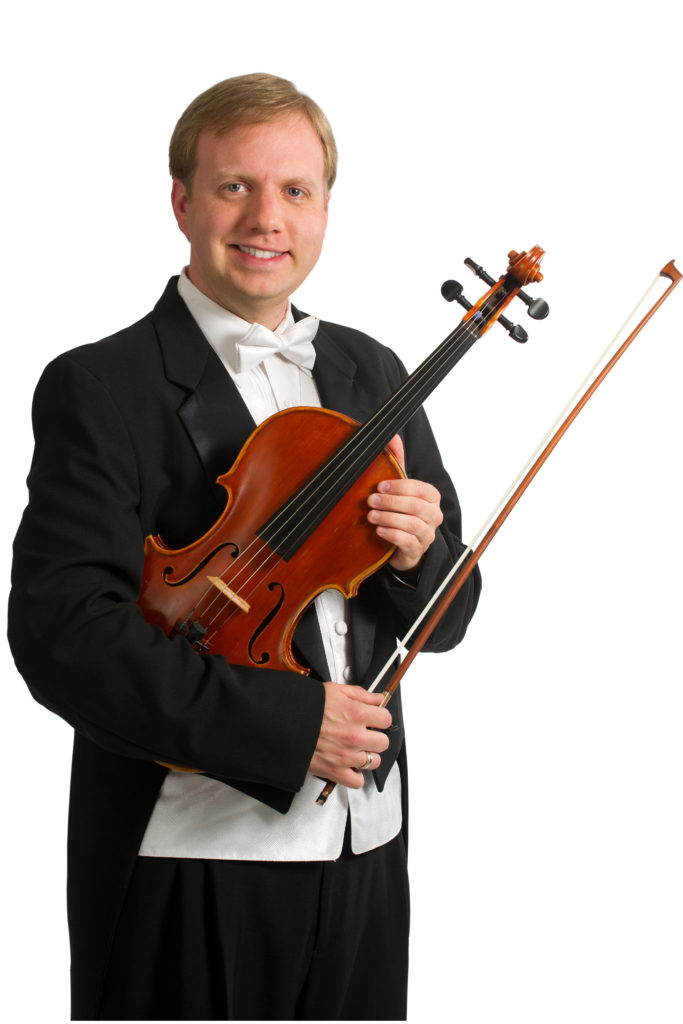
Photo: O’Neil Arnold 
5. As a performer, what are some of your favorite pieces?
As a violist, I am drawn to pieces that really utilize the viola well. I love performing pieces by Beethoven, Brahms, and Mahler as they really excelled at writing interesting viola parts.
6. What kind of resources are available for out-of-work musicians during quarantine?
This Coronavirus Pandemic is extremely detrimental to the performing arts. We cannot survive without being able to perform for a live audience. Currently, the things that we musicians are having to learn is how to market ourselves in this new virtual age. Many of us are learning how to collaborate while being socially distant with the Acapella app or teaching lessons over Zoom. We are learning as we go, and it’s not easy. Thankfully, musicians are all experiencing this crisis at the same time and that has helped many of us to learn these useful tools together.
7. You have worked and performed in other cities. What, if anything, is different about working in Louisville?
I was very fortunate to win my position in the Louisville Orchestra immediately after I had finished my master’s degree from Rice University in 2006. I had just started working for the Austin Symphony. Austin, in many ways is like Louisville. Both cities are somewhat eclectic and really support their local restaurants and businesses. Likewise, they both exhibit a love for their respective local arts scenes. The one thing that makes Louisville different is that it has a much deeper and richer history in new and diverse forms of music. One of the things that makes Louisville continue to stand out to me is their acceptance and hunger for being challenged with new musical compositions. That is truly a unique characteristic of Louisville’s musical DNA.
8. What is the most common misconception about “classical” music?
I think that the single biggest misconception is that a symphony orchestra plays only classical music. Classical music is not a genre of music, it is merely a period of symphonic music. Modern symphonic musicians need to be so flexible in our playing styles. We may play a concert that contains a classical piece such as a Beethoven symphony, but then the first piece on the program may be something written in the 20th century. The next week, we may be asked to play the music of Queen or even a full-length film score. Putting the classical music label on a symphony orchestra is limiting and not representative of our profession.
9. If you weren’t a musician, what do you imagine you would be doing?
When I was a kid, I always said that I wanted to be a lawyer. However, after growing up a little, I would likely be working with computers. I think that my mind is kind of wired in that way. I have a great love for problem-solving. During this pandemic I have been doing lots of crossword puzzles.
10. What is on your quarantine playlist?
Believe it or not, I am currently 20 lectures into a free Yale University audio course on the American Revolution. I have picked up running again during this quarantine and this course was recommended to me by the former principal second violin, Rob Simonds. He is an early American History buff and posted about it on Facebook. I have really enjoyed learning about the “first” unprecedented event in our nation’s history while we are currently experiencing the latest.
11. What books are on your bedside table?
Another history book, Team of Rivals by Doris Kearns Goodwin, and the sci-fi novel Snow Crash by Neal Stephenson.
12. What is the first thing you will do when quarantine is lifted?
The first thing I will do is have a cookout with all my beloved and esteemed colleagues of the Louisville Orchestra. I miss them all dearly.
Keith Waits is a native of Louisville who works at Louisville Visual Art during the days, including being the host of LVA’s Artebella On The Radio on WXOX 97.1 FM / ARTxFM.com, but spends most of his evenings indulging his taste for theatre, music and visual arts. His work has appeared in LEO Weekly, Pure Uncut Candy, TheatreLouisville, and Louisville Mojo. He is now Managing Editor for Arts-Louisville.com.

